Isuzu Environmental Vision 2050
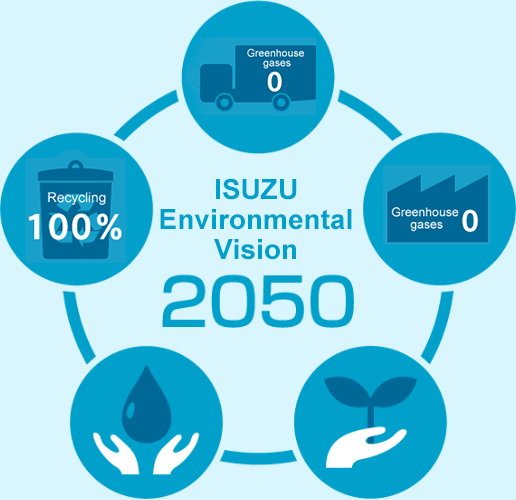
Our ambitious vision to minimize environmental impacts and secure a prosperous and sustainable society by year 2050
The Isuzu Group has formulated Isuzu Environmental Vision 2050 as a roadmap for maintaining our leadership in transportation and securing a prosperous and sustainable society by the year 2050.
Everyone in the Isuzu Group will work with our customers and business partners over the long run to realize this vision.
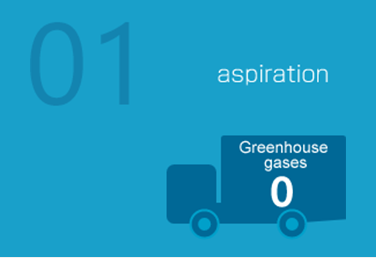
We will aim for zero greenhouse gas (GHG) emissions across the entire life-cycle of Isuzu Group products by 2050
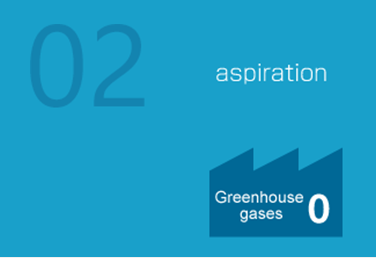
We will aim for zero greenhouse gas (GHG) emissions arising directly from Isuzu Group operations by 2050
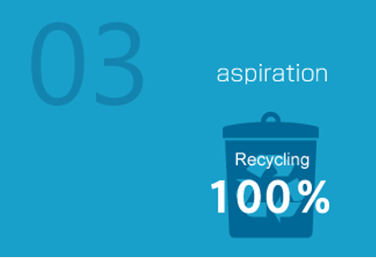
We will achieve 100% recycling of waste and end-of-use vehicles generated by Isuzu Group operations by 2050
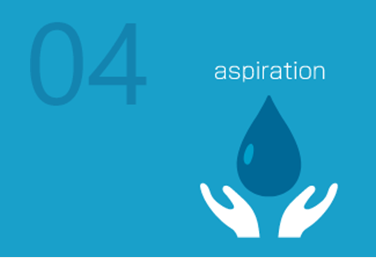
We will pursue safe, reliable operations and products across the entire Isuzu Group value chain
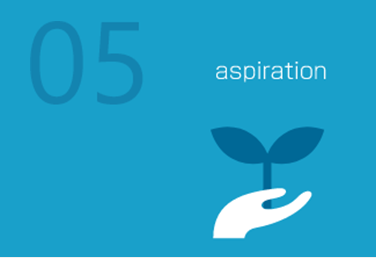
We will conserve native biodiversity in the areas surrounding Isuzu Group operations in partnership with NGOs and other stakeholders
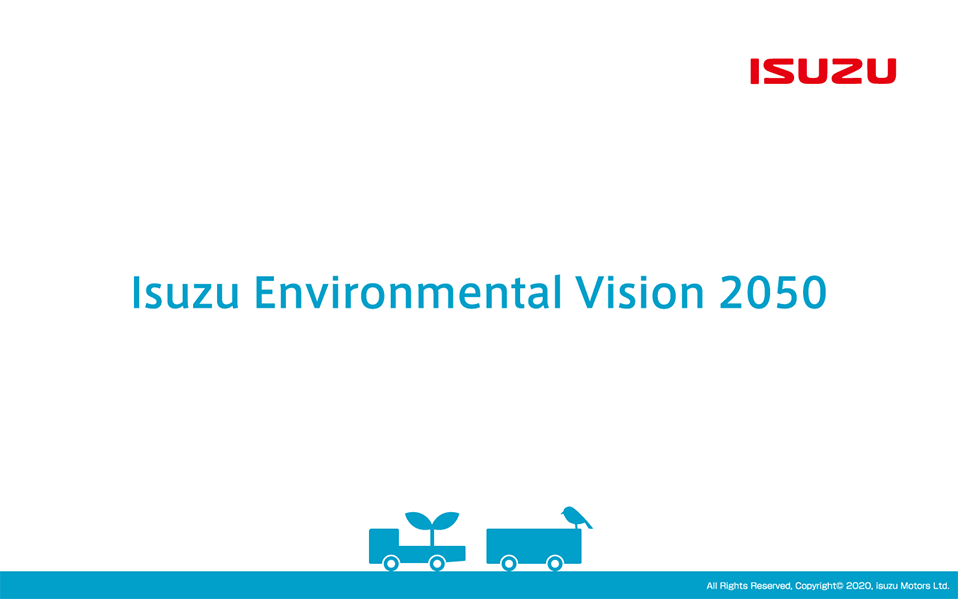
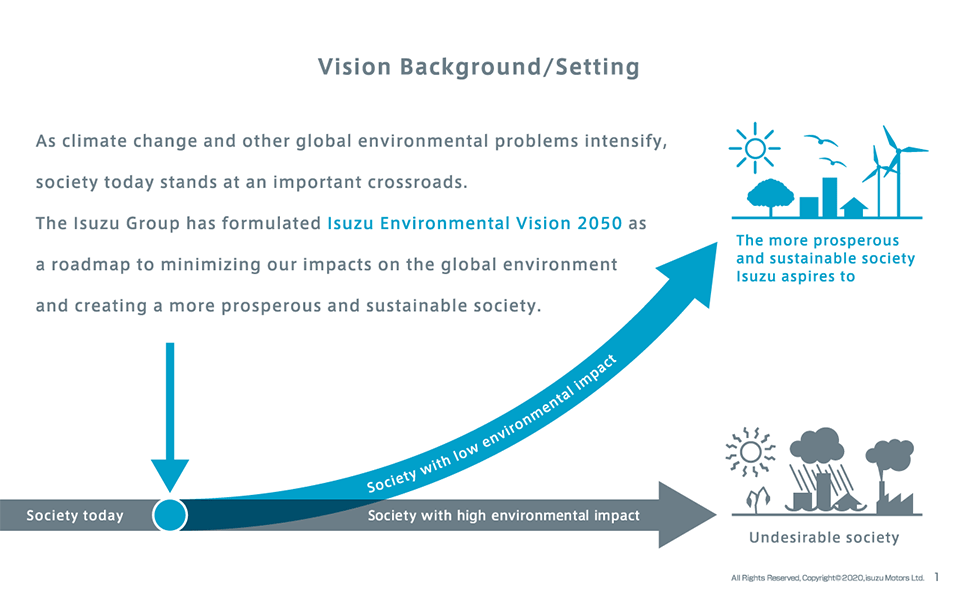
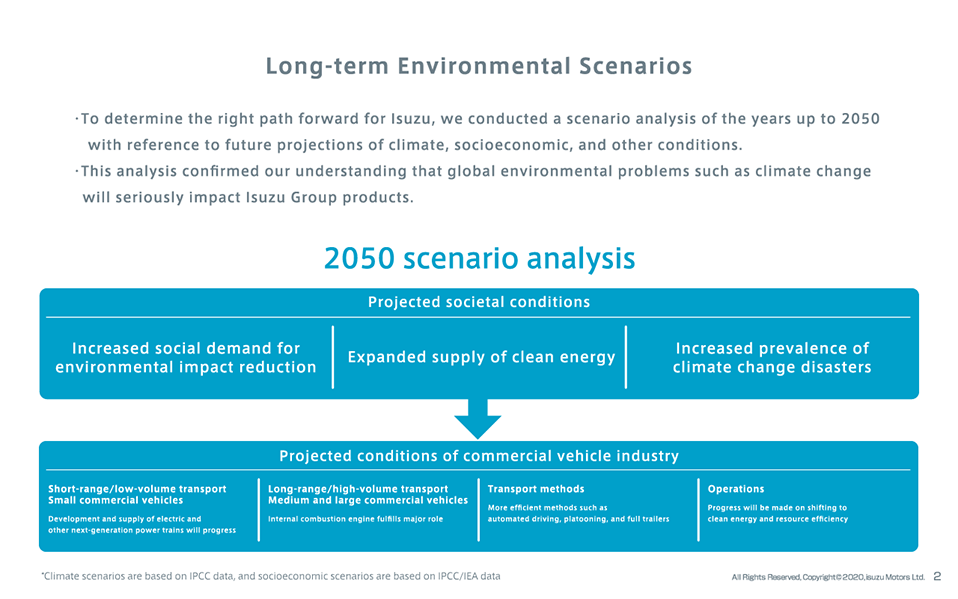
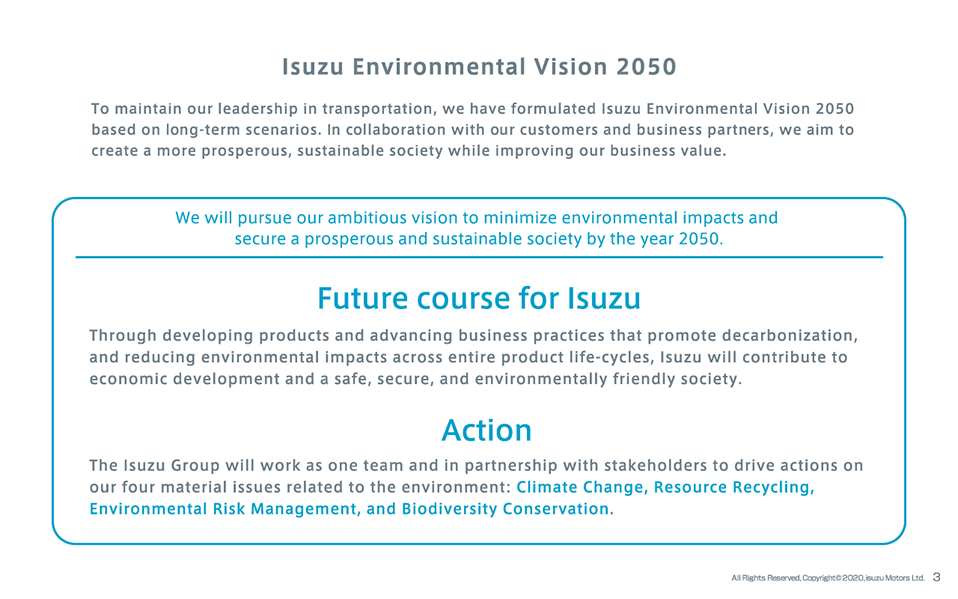
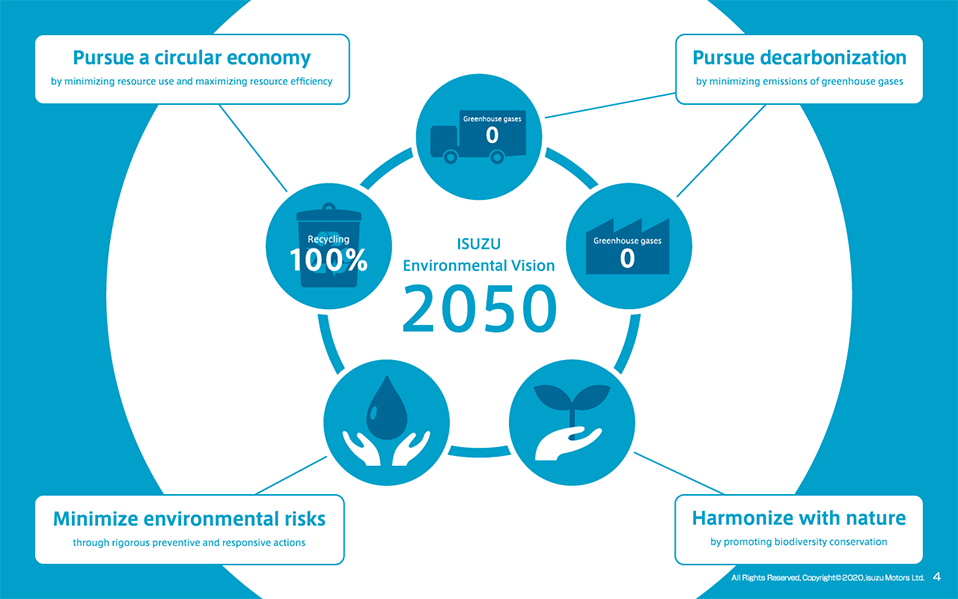
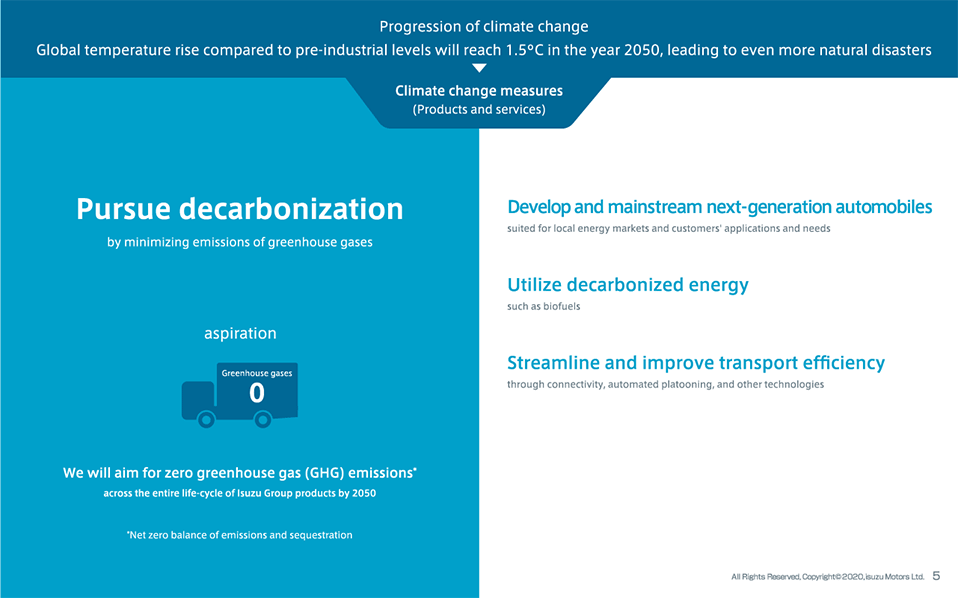
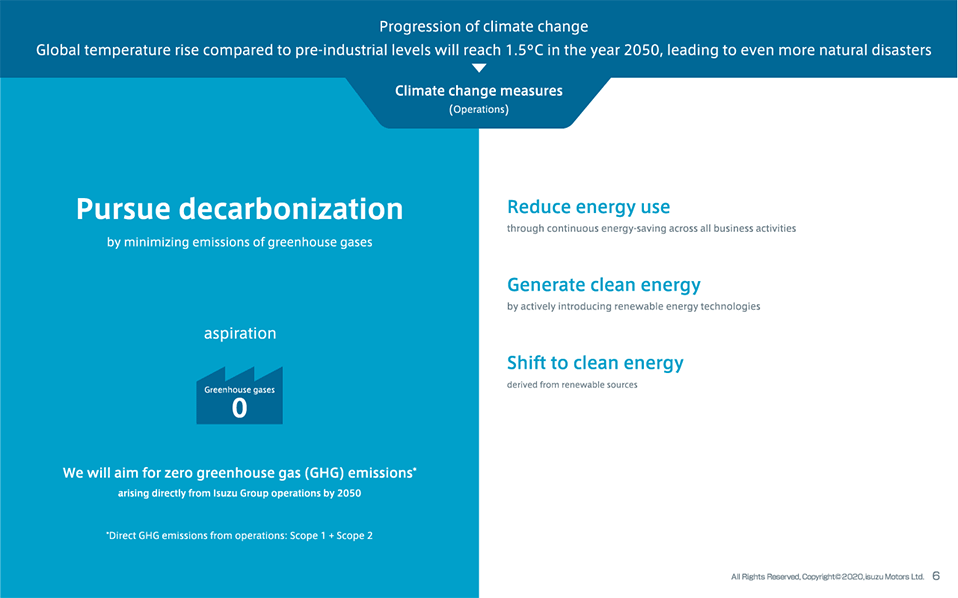
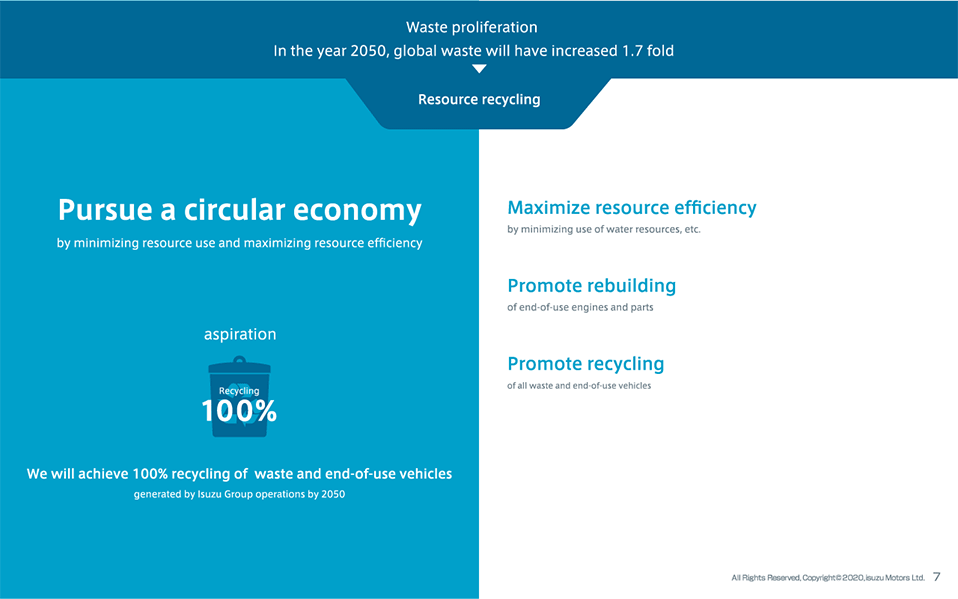
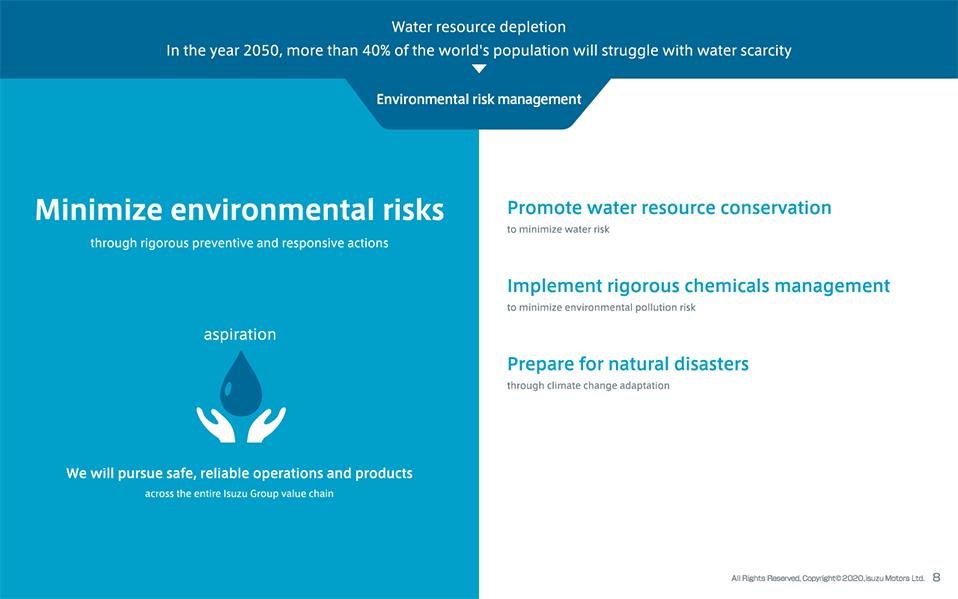
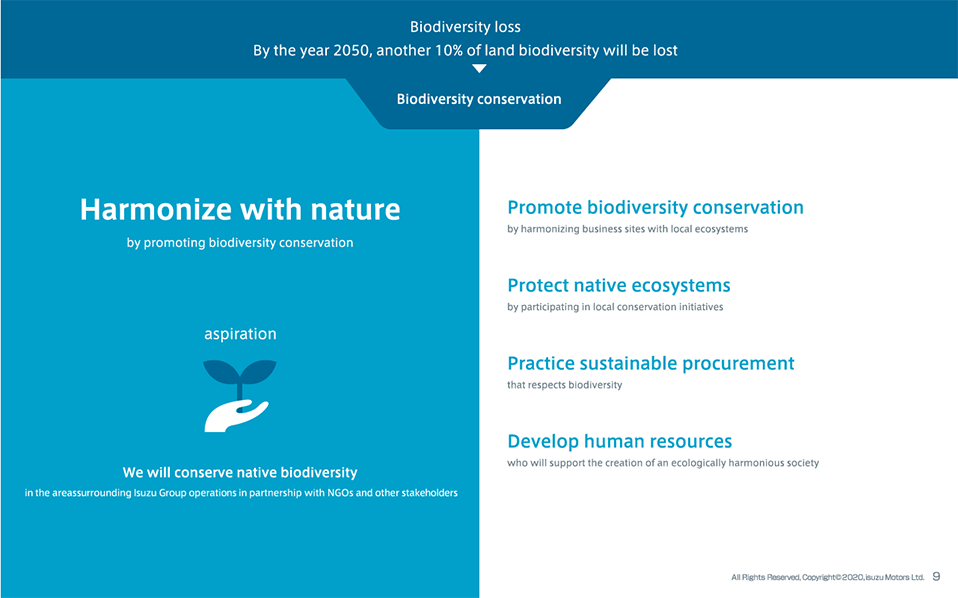
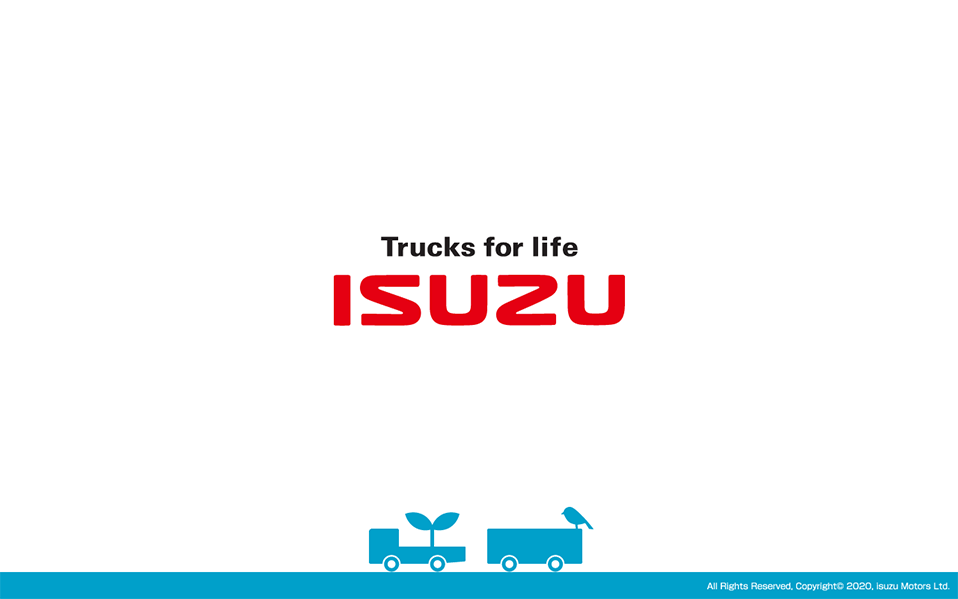
2030 Environmental Roadmap
Isuzu has announced a roadmap for ensuring steady progress toward Isuzu Environmental Vision 2050. The 2030 Environmental Roadmap translates the vision into goals and global actions for pushing forward on decarbonization and environmental sustainability in the years leading up to 2030.
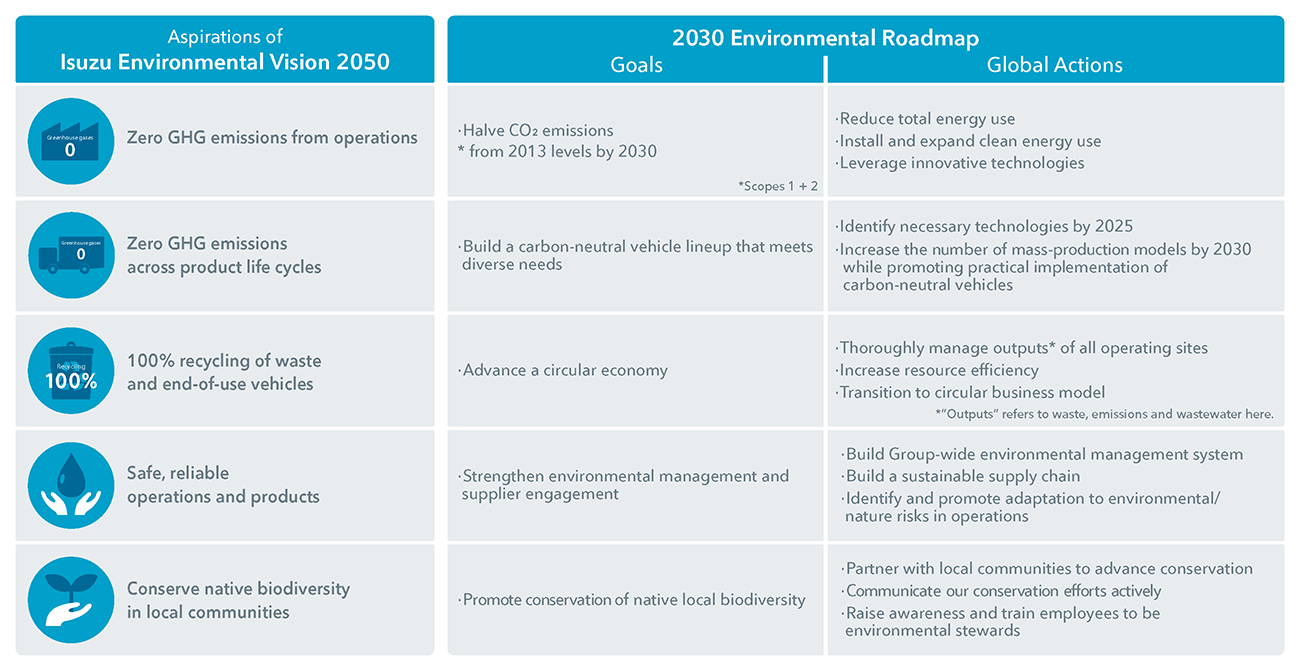

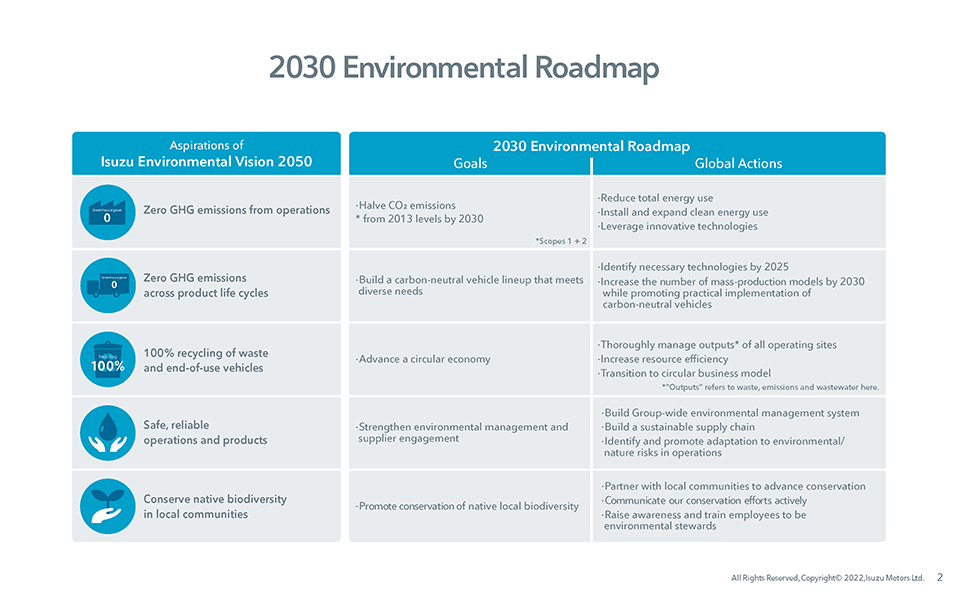
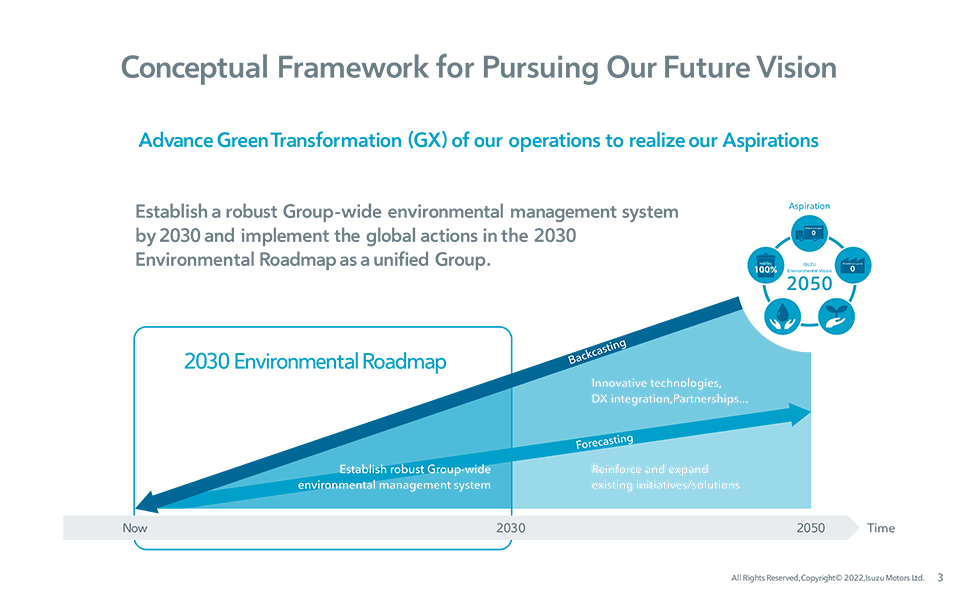
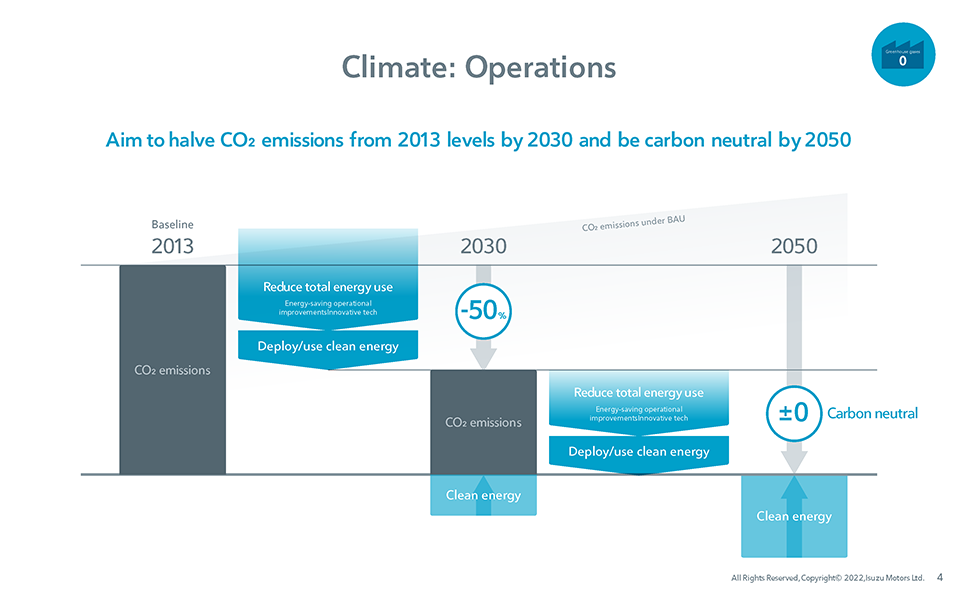
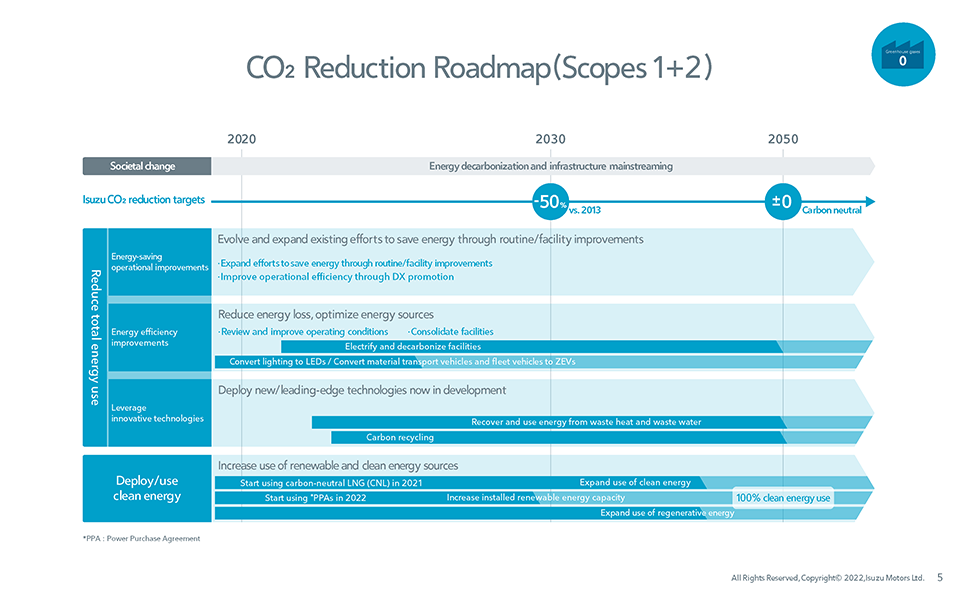
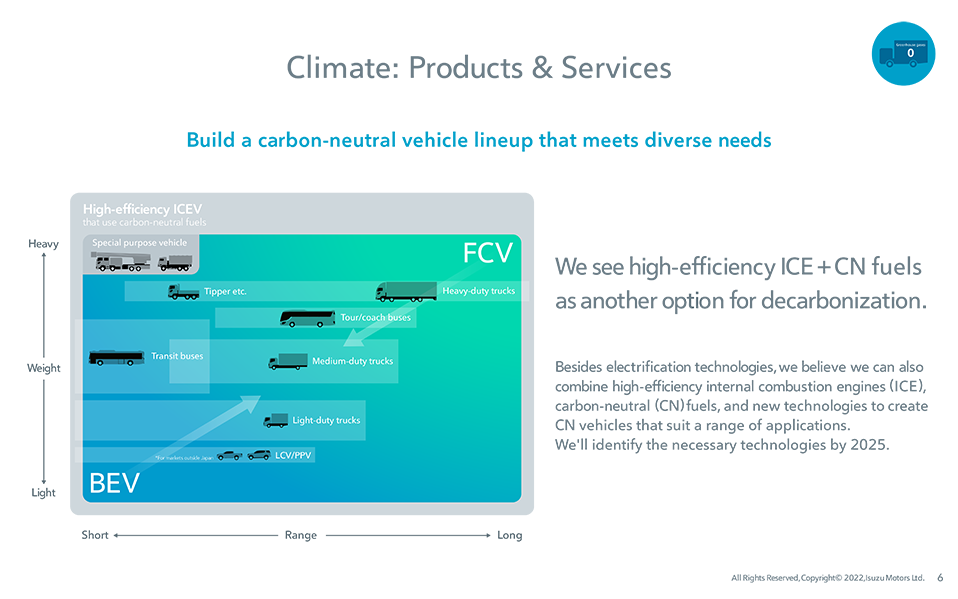
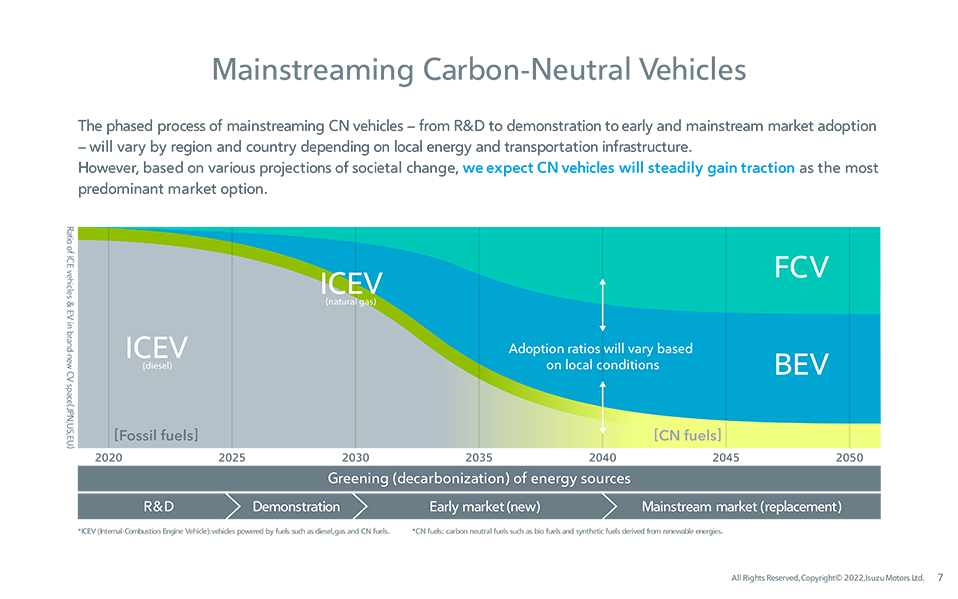
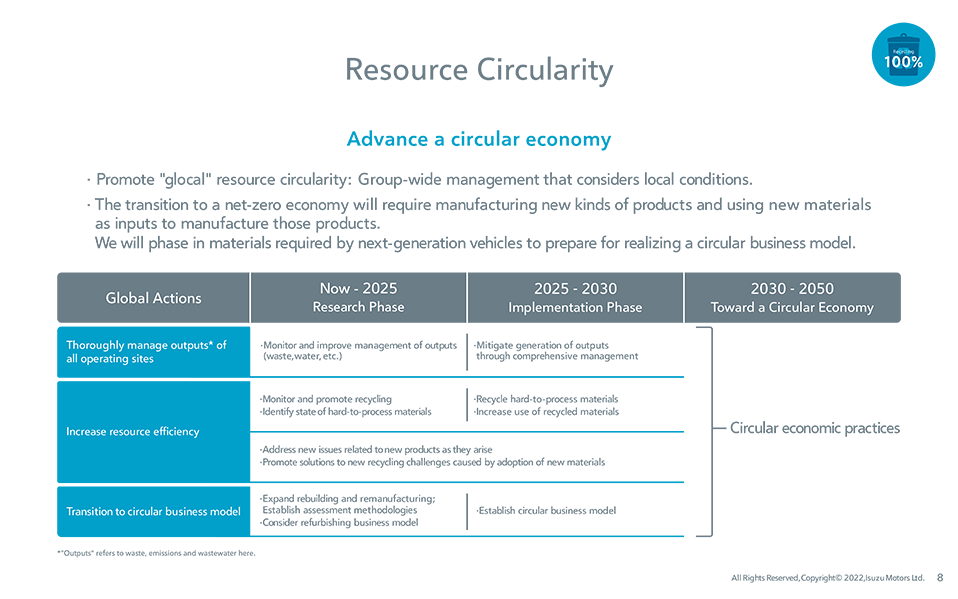
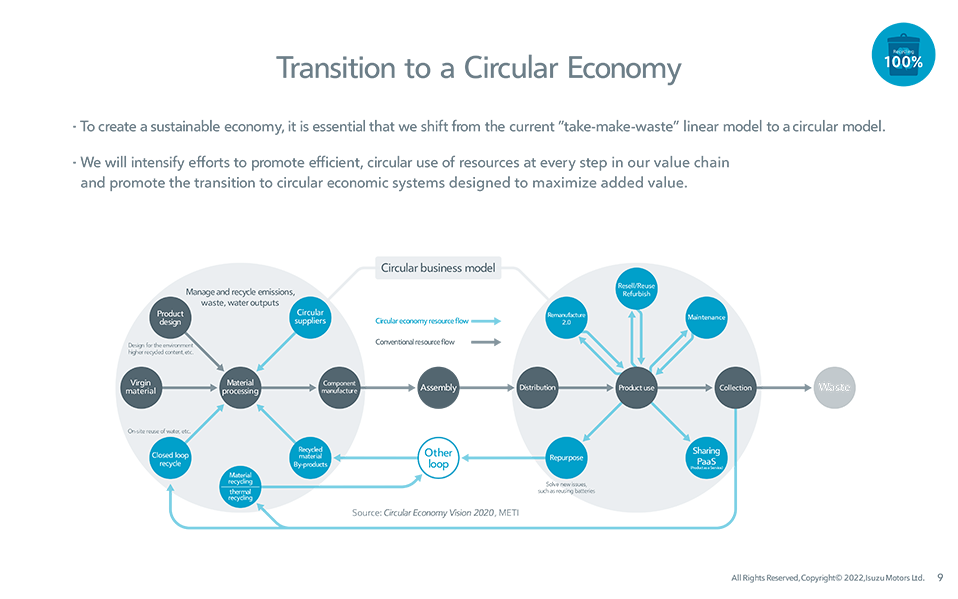



Sustainable Development Goals(SDGs)
Action on the Sustainable Development Goals (SDGs) adopted by the United Nations is crucial for realizing the society we envision.
By pursuing Isuzu Environmental Vision 2050, we will also contribute to achievement of the SDGs.
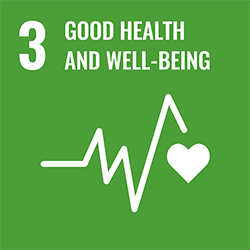
Ensure healthy lives and promote well-being for all at all ages
3.9 By 2030, substantially reduce the number of deaths and illnesses from hazardous chemicals and air, water and soil pollution and contamination
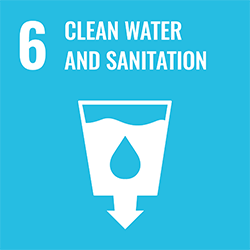
Ensure availability and sustainable management of water and sanitation for all
6.3 By 2030, improve water quality by reducing pollution, eliminating dumping and minimizing release of hazardous chemicals and materials, halving the proportion of untreated wastewater and substantially increasing recycling and safe reuse globally
6.b Support and strengthen the participation of local communities in improving water and sanitation management
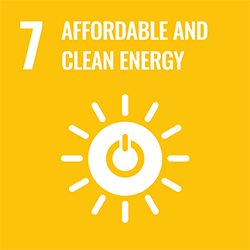
Ensure access to affordable, reliable, sustainable and modern energy for all
7.2 By 2030, increase substantially the share of renewable energy in the global energy mix
7.3 By 2030, double the global rate of improvement in energy efficiency
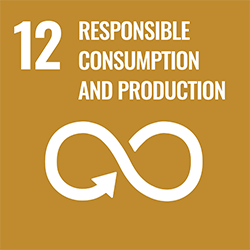
Ensure sustainable consumption and production patterns
12.4 By 2020, achieve the environmentally sound management of chemicals and all wastes throughout their life cycle, in accordance with agreed international frameworks, and significantly reduce their release to air, water and soil in order to minimize their adverse impacts on human health and the environment
12.5 By 2030, substantially reduce waste generation through prevention, reduction, recycling and reuse
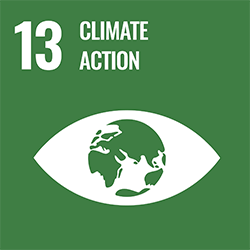
Take urgent action to combat climate change and its impacts
13.2 Integrate climate change measures into national policies, strategies and planning
13.3 Improve education, awareness-raising and human and institutional capacity on climate change mitigation, adaptation, impact reduction and early warning
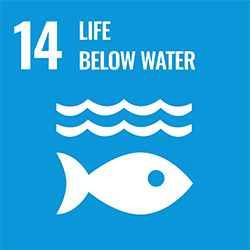
Conserve and sustainably use the oceans, seas and marine resources for sustainable development
14.1 By 2025, prevent and significantly reduce marine pollution of all kinds, in particular from land-based activities, including marine debris and nutrient pollution
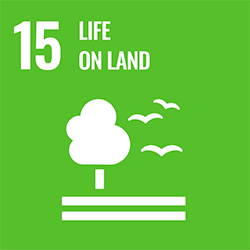
Protect, restore and promote sustainable use of terrestrial ecosystems, sustainably manage forests, combat desertification, and halt and reverse land degradation and halt biodiversity loss
15.2 By 2020, promote the implementation of sustainable management of all types of forests, halt deforestation, restore degraded forests and substantially increase afforestation and reforestation globally
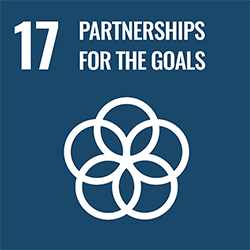
- Strengthen the means of implementation and revitalize the Global Partnership for Sustainable Development
-
17.16 Enhance the Global Partnership for Sustainable Development, complemented by multi-stakeholder partnerships that mobilize and share knowledge, expertise, technology and financial resources, to support the achievement of the Sustainable Development Goals in all countries, in particular developing countries
17.17 Encourage and promote effective public, public-private and civil society partnerships, building on the experience and resourcing strategies of partnerships
Through collaborating with our customers and business partners
to create a more prosperous, sustainable society,
we aim to achieve sustained improvements in our business value.

